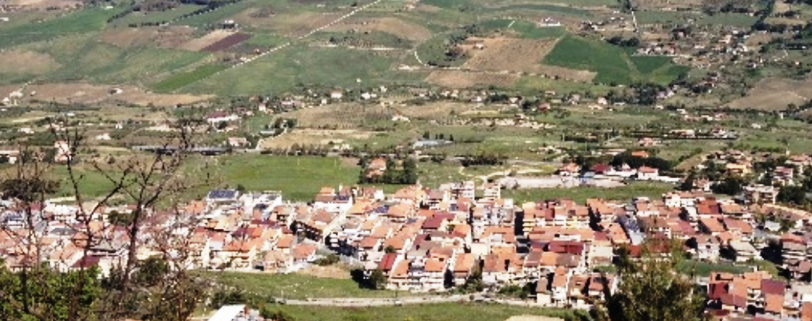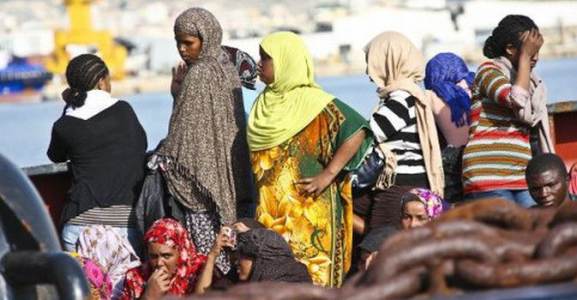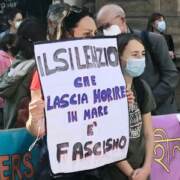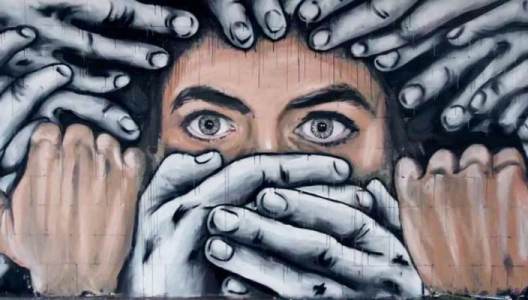Reception and Integration Centers: a new site for declining human rights
Article first published on June 30, 2022
The SAI* center of San Giuseppe Jato, Palermo, founded by the La Fernice cooperative, is situated outside the city center behind a supermarket and the main street that goes to Palermo.
At the end of a steep and unpaved side street, surrounded by fields and brushwood, a large house appears. The managers of the center tell us that even the postman refuses to take this route, which is why one of the guests is still waiting for his health card after many months. The first impression of the isolation of the facility is more typically associated with Extraordinary Reception Centers than with one that is part of the Reception and Integration System.
Critical details observed by the guests
During our authorized visit inside the center, we spoke with guests who reported a series of violations and attacks on their rights both within Italy and inside the center. A few told us they had spent years in Italy (one having spent six years) without having received a valid residence permit and therefore remain dependent on the reception system – a system that appears to produce injustice rather than defend against it, and to often deny basic human rights.
The guests attest they are “forced” to work, typically in the fields, because of their need of funds, especially considering the last dispersal of pocket money was done last February. In addition to this spending money, the weekly payment of 24.50 euros per person is expected to cover expenses related to food and hygiene. This money arrives in a timely manner but is not sufficient to meet actual weekly expenses. Guests also tell us that they have not received any clothes, and that they are also expected to save money for those and whatever medicine they need. “How are we meant to do that?” they ask us.
They tell us it is very difficult to find a job with a legitimate contract. Given this landscape, and the absence of the manger of legal affairs (who center operators told us comes every Saturday but who the guests say they have not seen for weeks), the supposed “workers’ rights” and bans on illegal employment seem paradoxical.
If documents and the need for income are their main priorities, guests also express frustration with the center’s physical condition, communication with the managers, and lack of language courses (the last course finished in February, with nothing yet replacing it). Worse still, although the managers tell us that during the Covid-19 pandemic the infected guests were kept separate from the others, that is not what those we spoke with told us, even relaying that they had to share bathrooms with one another.
There is a noticeable lack of trust and communication between some of the guests and management; the former, suspicious, tell us that cleaning is only done before scheduled reviews of the space, that the center is usually not organized or clean as we saw it, and that they must usually do all the cleaning themselves. But even from what we have seen, the structure is far from in excellent condition: broken showers, partially renovated and unclean bathrooms. Some say that if they report a problem with the facility it will get resolved within a few days, but others complain: “When I’m upset about something, I talk to them, but they don’t listen to me. It feels like discrimination.” Some say it just isn’t even worth saying anything at all.
During the visit, a little after 11:00 am, many guests were still sleeping. In interviews, they told us they feel weary and that they lack activity and liveliness in their days. ”We had problems in our countries, we escaped wars, we escaped Libya…now do we need to escape from Sicily?”
Response from management
When we reported these criticisms to the center’s operators, they claimed that “from a bureaucratic perspective, we are doing all that is necessary.”
The managers accused the Ministry and Municipality, who are responsible for financing the center and its services, of performing poorly. They tell us they are waiting for funds to restart various projects. A similar explanation is given for why those who interned at local farms have yet to receive their last month’s salary (from six months ago), and why there have been delays on the pocket money: “If the money doesn’t come to us, how can we do it?” And the operators themselves are not paid regularly. The delay in the transfer of funds by the ministry represents a major problem for the functioning of the reception system, leaving managers unpaid and guests in need of services that aren’t being provided.
But the managers also revealed their own complaints against the guests. When we asked how they respond to reports by guests of defects and material problems in the facility, they tell us that we are fighting the wrong problem because they are the disorganized ones, that is, that it is the guests who aren’t cleaning or caring for the space. The guests are often described by managers in infantilizing ways, as children who need to be saved and educated rather than men with rights. For instance, they call them “our boys,” they speak of the center as a family unit with the management in the roles of parents. They tell us they stopped providing money to guests for the bus ride to the CPIA* (adult education school) in Palermo after discovering that some of them were going into the city and not attending their classes.
Such treatment is obviously perceived by the guests, who report of being treated like “children” or “animals.” “But,” they insist, “we are grown people and we know our rights.”
The visit made clear that there is an existing problem with centers that are part of the SAI-system but operate similarly to the Extraordinary Reception Centers. The guests inside revealed many shortcomings and lodged complaints that are common to prefectural centers – isolation and the lack of activity, education, and purpose in Sicily.
Borderline Sicilia
*SAI: Sistema di accoglienza diffuso – Diffused Reception and Integration System
*CPIA: Centri Provinciali di Istruzione per gli Adulti – Education Centers for Adults
Translated from Italian by Olivia Taibi






